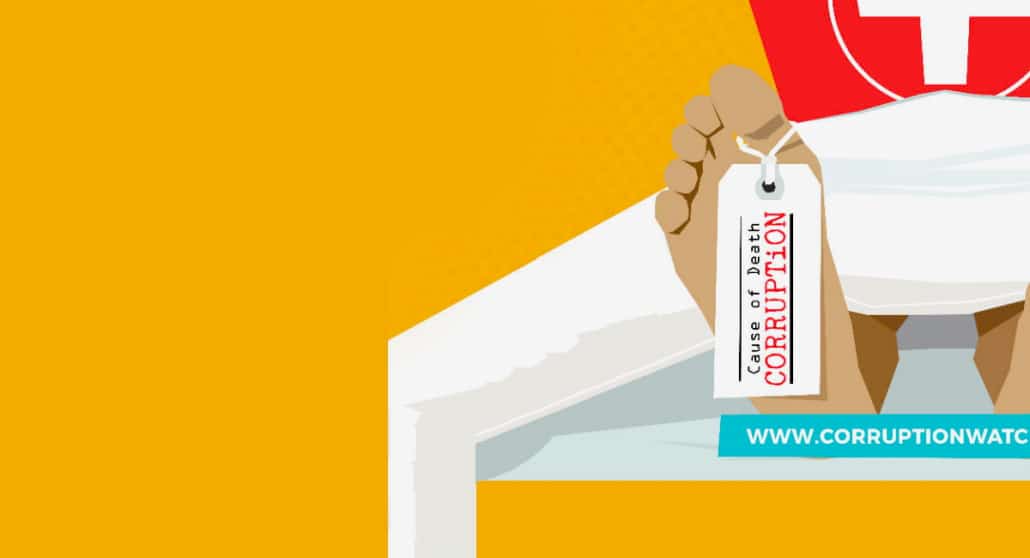Corruption Watch, in a report released today, points to the devastating impact of corruption on the lives of people reliant on receiving basic healthcare services from public health facilities in South Africa. The report is titled X-Ray: The critical state of the health sector in SA.
This impact, says the organisation, is intensified in the current context of the coronavirus pandemic sweeping South Africa, and the ability of the struggling health sector to manage this overwhelming challenge.
“Our major headache as a country is to apportion scarce resources to an ailing public health sector that is inherited from apartheid South Africa,” says Corruption Watch researcher Melusi Ncala, author of the report.
Since its launch in 2012, Corruption Watch has received almost 700 reports of corruption relating to health. Our review of these reports highlights the troubling reality that it is the most vulnerable in our society, namely the elderly, women, and children, who are most likely to bear the brunt of the fall-out from corruption. This corruption takes a variety of forms, ranging from embezzlement of funds to procurement irregularities resulting in shortages of medication and malfunctioning equipment, or pressure to pay bribes for access to services that are a basic human right.
The most prevalent forms of corruption in the sector countrywide are employment corruption (39%), procurement corruption (22%), and the misappropriation of resources (16%). In the area of employment, this manifests as absenteeism, allegations of nepotism and favouritism, and the appointment of unsuitable candidates, with no accountability for decisions around employment. Cases of employment corruption were highest in the Northern Cape (55%), followed by Mpumalanga at 51%, and KwaZulu-Natal (36%).
Another area of concern is corruption in procurement, which takes the form of inflated pricing, irregularities in awarding of tenders, preferential treatment of suppliers, and kickbacks paid to officials when contracts are awarded. Most cases of corruption in procurement were reported in Limpopo (50%), followed by Free State (46%), and the Western Cape at 28%.
Use the interactive data dashboard below to explore the results. Click the double-headed arrow at the bottom right of the dashboard to enter full-screen mode:
Also featured in the report are cases relating to misappropriation of resources, which involves the mismanagement of funds and use of state resources for their own benefit by officials and employees of various hospitals and clinics. The outcome of these corrupt activities is shortages of medication, lost or damaged equipment, and unlawful pressure on state resources, which can even lead to loss of lives.
“The criminals occupying the halls, offices, wards and dispensaries of our health centres are compounding the problems we face by siphoning funds from a kitty that is running dry and by thieving from depots that are short on medical supplies,” says Ncala. “At the end of it all, almost 50-million people’s constitutional right to life amounts to nought. The question arising from this report is, therefore, when is it your turn to fall victim – or your turn to ring the alarm on corruption?”
The issue of corruption in the health sector should be of paramount concern as it prevents a vast section of the population from accessing their right to decent healthcare. The unacceptable economic disparities that exist in South Africa are particularly exposed in the health sector, where those most in need are deprived of their constitutional right to receive life-saving and quality health services.
For more information:
Phemelo Khaas 083 763 3472 phemelok@corruptionwatch.org.za

